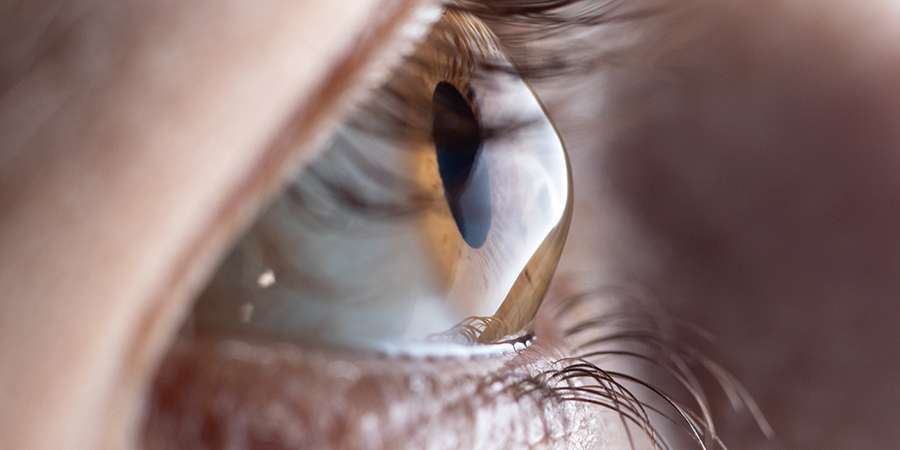Keratoconus


What is Keratoconus?
Keratoconus is a progressive eye condition that affects the cornea—the transparent, dome-shaped surface at the front of the eye. In patients with keratoconus, the cornea gradually thins and weakens, causing it to bulge outward in a cone-like shape. This distortion can lead to significant vision problems, including blurred, distorted, and irregular vision.
Typically, keratoconus affects both eyes, although one eye may be more severely affected than the other. The condition usually starts in the teenage years and continues to progress into the 30s, although it can be diagnosed at any age.
Symptoms of Keratoconus
The symptoms of keratoconus may worsen gradually, and they can affect everyday activities. If you experience any of the following, you may be dealing with keratoconus:
- Blurred vision: Even with glasses or contact lenses, vision may remain blurry.
- Ghosting of images: Seeing multiple images or halos around lights.
- Distorted vision: Objects may appear misshapen or skewed.
- Sensitivity to light: Bright lights may cause discomfort.
- Glare: Glare from headlights or streetlights can be uncomfortable, especially at night.
- Frequent changes in glasses prescriptions: A sudden need for stronger or different glasses prescriptions can be an indication of keratoconus.
If you experience any of these symptoms, it’s important to see an eye specialist as soon as possible. Early diagnosis and treatment can help manage the progression of the condition.
How is Keratoconus Diagnosed?
If you experience symptoms of keratoconus, or if you’ve been diagnosed with corneal astigmatism that isn’t responding well to glasses, visiting an ophthalmologist is essential. The diagnosis process begins with a thorough eye examination:
- Eye Test: Your eye doctor will test your vision and assess the prescription for glasses or contact lenses.
- Slit Lamp Examination: Using a slit lamp biomicroscope, the ophthalmologist will closely examine the shape of your cornea. This allows them to identify any signs of thinning or distortion.
- Corneal Topography: If keratoconus is suspected, your doctor may recommend a corneal topography. This specialized scan maps the shape and thickness of your cornea, providing detailed information about the severity of the condition.
Management and Treatment of Keratoconus
Once diagnosed with keratoconus, the next step is to determine the best course of action for your treatment, which is tailored to the severity of your condition. The goal of treatment is to slow the progression of keratoconus and improve vision.
- Mild Keratoconus:
For cases where the cornea is only slightly affected and there is no significant thinning or steepening, observation is often recommended. Your doctor may suggest regular follow-up appointments to monitor the condition and ensure it is not worsening. Vision correction may be achieved with glasses or soft contact lenses in the early stages. - Moderate Keratoconus:
If the condition is more advanced, but still manageable, a procedure called Corneal Collagen Cross-Linking (CXL) is often used. This therapeutic treatment strengthens the cornea by using UV light and riboflavin (vitamin B2) to stabilize the cornea and prevent further progression. This can help improve vision and delay the need for a corneal transplant. - Severe Keratoconus:
In cases where keratoconus has significantly affected the cornea, Deep Anterior Lamellar Keratoplasty (DALK) may be necessary. DALK is a type of partial corneal transplant where only the front layers of the cornea are replaced with donor tissue. This procedure preserves the cornea’s inner layers, reducing the risk of complications and offering a better visual outcome.
Treatment Options at Bajaj Eye Centre
At Bajaj Eye Centre, we provide the latest advancements in keratoconus management. Our team of experienced eye specialists uses state-of-the-art technology for diagnosis and treatment. Whether you have mild, moderate, or severe keratoconus, we offer personalized care to ensure the best possible outcomes. Some of the treatments we provide include:
- Custom Contact Lenses: Specialized contact lenses, including rigid gas permeable (RGP) lenses, scleral lenses, and hybrid lenses, can help improve vision in people with keratoconus.
- Corneal Collagen Cross-Linking (CXL): This procedure is a non-invasive way to halt the progression of keratoconus. It’s one of the most effective treatments for stabilizing the cornea.
- Corneal Transplant (DALK): For more advanced cases, we offer partial corneal transplants to restore vision and improve quality of life.
Why Choose Bajaj Eye Centre for Keratoconus Treatment?
At Bajaj Eye Centre, we pride ourselves on providing the best care for keratoconus patients. Our dedicated team of experts uses cutting-edge diagnostic tools and treatments to ensure that you receive the most effective and personalized care. With our state-of-the-art facilities and compassionate approach, we strive to help you achieve better vision and manage your condition with confidence.
Contact Us Today
If you suspect you have keratoconus or have been experiencing any of the symptoms mentioned above, don’t hesitate to contact us. Early intervention can help prevent further progression and improve your vision. Our team at Bajaj Eye Centre is here to help you understand your condition and provide the best treatment options available.
Reach out to us today to schedule an appointment and take the first step towards better vision!
Get The Free Consultation
Useful Links
Get in Touch
Monday – Saturday
9 am – 7pm
Sunday – Closed
- +91-82959-12777
- 0180-2630777
- Bajaj Eye Centre, 206 New Sukhdev Nagar, Panipat
© 2025 Bajaj Eye Centre. All Rights Reserved – Designed by Fatewise.com

